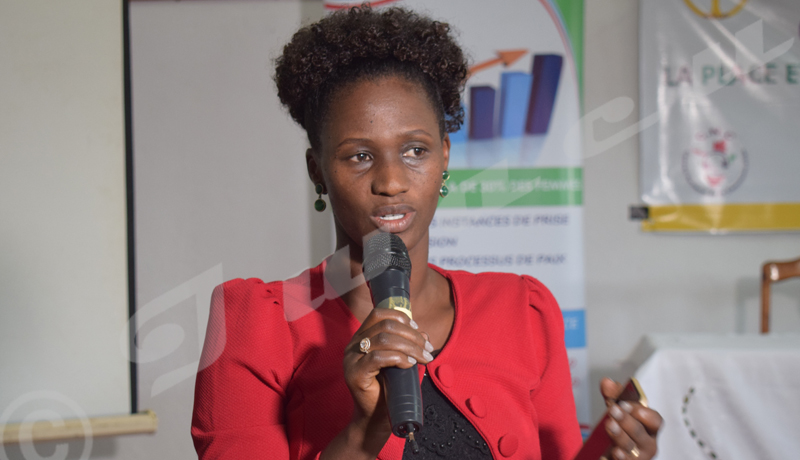“32% of 1,420 journalists who have registered at Burundi media regulator-CNC to get the press card are women while the latter are represented at 14% in decision-making organs,” said the Association of Women Journalists- AFJO in a conference held on May 2nd with media officials.

Diane Ndonse, AFJO Chairperson: “Women are represented at 14% in decision-making bodies”
Diane Ndonse, AFJO chairperson, says women are not sufficiently represented. She wishes that women should be represented at 50% in decision-making bodies. Mrs Ndonse indicates that the causes of the fact that women are not represented enough in the media are mainly due to the Burundian press law and culture. “The press law in Burundi does not specify the rate of women representation in the media,” she says adding that “the Burundian culture also constitutes a major obstacle to women’s development.
“Girls are often expected to do household activities. They do not have access to schooling like boys, “she says. She regrets that even those who have had the chance to study are underestimated by their employers. “Some media officials interviewed by AFJO told us that women cannot work like men, hence their low representation in decision-making bodies, “explains Mrs Ndonse.
She asks the government to adopt the law increasing the representation of women and young people in the media. She calls on media officials to grant internships to young people so that they integrate into journalism. On this point, Sylvère Ntakarutimana, Director of Radio Isanganiro explains that the media face the lack of work equipment to grant internships to the young people who wish it.
“A trainee needs a recorder, a computer, a table and a chair. So, we are forced to grant few internships according to the means we have, “says the Director of Radio Isanganiro.



















 IWACU Open Data
IWACU Open Data

